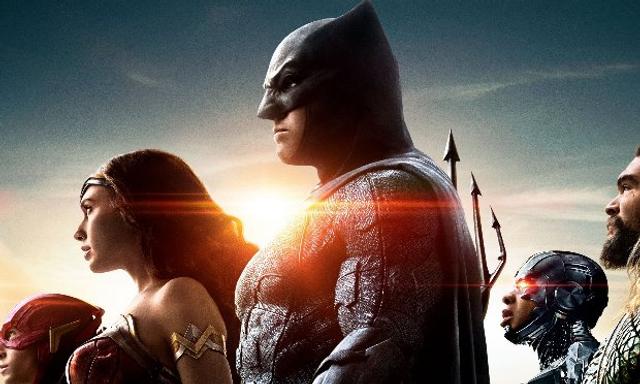No matter how you slice it, the DC Comics cinematic universe - the DCEU, as its become known - hasn't worked with critics.
Although it's only four films in, just one of them has managed to score over 60% on either Metacritic or Rotten Tomatoes. Suicide Squad received the worst critical response so far, managing to come away with a 26% rating on Rotten Tomatoes and a 40% rating on Metacritic. Batman V Superman: Dawn Of Justice, meanwhile, fared only slightly better - 27% on Rotten Tomatoes, 44% on Metacritic. Man Of Steel, which kicked off the whole enterprise, scored 55% on both review aggregates. Justice League is currently sitting at 46% on Metacritic and 41% on Rotten Tomatoes. The only ray of hope has been Wonder Woman, which has a healthy 92% on Rotten Tomatoes and 76% on Metacritic.
However, when you drill down into the financial data, it tells a much different story.
While none of the films so far have crossed the billion dollar line with the ease that The Dark Knight Rises or The Avengers have, they've all performed considerably well. Suicide Squad managed to come away with $745 million, Batman V Superman: Dawn Of Justice made $873 million whilst Wonder Woman made $821 million. The runt of the litter, commercially speaking, has been Man Of Steel which only managed $668 million. All these figures sound positive, but what makes it difficult to gauge their financial success is how much they actually cost.
Let's take Suicide Squad as an example. Its production budget was $175 million, but its marketing and promotional budget remains a mystery. For Suicide Squad, Warner Bros. reportedly spent $2.6 million in the US alone on television advertising. THR reported that in order to break even for Warner Bros., Suicide Squad needed to make $800 million worldwide. If this figure is to be believed, it fell short by $55 million. Others, however, have poo-pooed this figure as being far too high and suggest that the film - in total - really only cost somewhere in the region of $500 million all in, which would mean Warner Bros. made somewhere in the region of around $245 million. Again, this is all just estimates. Nobody really knows anything - and Warner Bros. definitely isn't going to admit it, either.
Early reports for Justice League say that it's going to end up costing the studio something in the region of $100 million, as box office figures for it have been well below estimate. Here in Ireland alone, the film didn't secure the No.1 spot on its opening weekend and had to contend with Paddington 2 keeping its top spot. With a reported production budget of $300 million, Justice League is rumoured to be the second-most expensive film ever made. That's not even counting the marketing budget, which would probably be well over $100 million. Before the dawn of Netflix and piracy, studios could at least depend on DVD, VHS and TV rentals to make up some of the losses. In fact, more than a few were saved on the back of these. Considering that the home market has all but been destroyed, studios can't rely on this any more - it has to make its money in cinemas in order to sustain itself, with the likes of theme parks and promotional tie-ins becoming an added bonus.
So far at least, it doesn't appear like the DCEU has lost Warner Bros. much in the way of money and they could conceivably continue on with the whole thing for the next couple of years, collecting $700+ million from each movie and throwing two fingers up to critics while they do it. But what's telling is that Warner Bros. could very well be looking for a way to tie the whole thing off and start over. As we previously reported, a separate imprint is being explored by Warner Bros. that could potentially see the likes of a Joker origins film or one-off stories like Superman: Red Son being given a live-action adaptation - all with established, prestige directors and writers working on them to help bring them over the line.
Whether it comes to fruition remains to be seen, but why would Warner Bros. even broach the subject if it was happy with the DCEU's performance, both critically and commercially?









































































